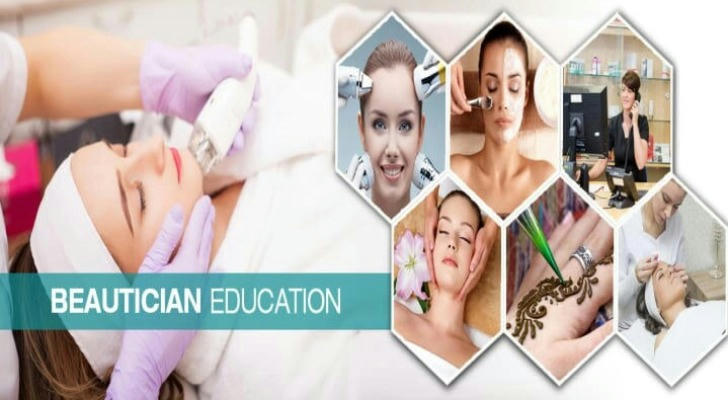Beauty Training Courses: The Key to Unlocking a Career in Beauty
In today's society, the beauty industry is booming and has become an important field for many people pursuing beauty and confidence. Whether you want to enhance your personal beauty skills or are eager to start a career in the beauty industry, professional beauty training courses are an essential stepping stone. This article will introduce you to the world of beauty training courses and help you better understand this field.

I. Types of Beauty Training Courses
Beauty training courses are mainly divided into three categories: basic beauty courses, professional beauty courses, and specialized beauty courses.
(i) Basic Beauty Courses
Basic beauty courses are designed for beginners and aim to help learners acquire the fundamental knowledge and skills in the beauty industry. These courses typically cover basic skincare, introductory makeup techniques, and basic nail and eyelash care. Through these courses, learners can build a preliminary understanding of the beauty industry and lay a solid foundation for further in-depth study.
(ii) Professional Beauty Courses
Professional beauty courses focus more on enhancing and deepening skills and are suitable for learners who already have a certain foundation. These courses usually include advanced skincare, advanced makeup artistry, hair styling, and beauty industry management. Professional beauty courses can help learners delve deeper into a specific area, enhancing their competitiveness in the beauty industry.
(iii) Specialized Beauty Courses
Specialized beauty courses provide in-depth training for specific beauty projects or techniques, such as semi-permanent makeup, beauty instrument operation, and beauty industry regulations and standards. These courses can help learners acquire specialized skills in a particular field, meeting the market's demand for talent in specific beauty projects.
II. Ways to Study Beauty Training Courses
(i) Offline Courses
Offline beauty training courses are the most traditional way of learning. Learners need to attend courses at designated training schools or institutions. The advantage of this method is that it provides face-to-face teaching and practical guidance. Learners can interact fully with teachers and other students, solving problems encountered during the learning process in a timely manner. However, the time and location of offline courses are relatively fixed, and learners need to adjust their schedules according to the course arrangements.
(ii) Online Courses
With the development of internet technology, online beauty training courses are becoming increasingly popular. Online courses are taught through internet platforms, and learners can study course content at any time and place through computers or mobile devices. This method is highly flexible and suitable for learners who have an irregular schedule and cannot attend offline courses. However, online courses lack face-to-face interaction and practical guidance, and learners need to have strong self-study and practical abilities.
(iii) Blended Courses
To combine the advantages of offline and online courses, some beauty training institutions have launched blended courses. This course model combines online teaching with offline practice. Learners first study theoretical knowledge through online courses and then attend offline practical courses at specified times to receive on-site guidance and operation demonstrations from teachers. This method ensures the flexibility of learning while providing practical guidance, making it an ideal way to learn.
III. Key Points for Choosing Beauty Training Courses
(i) Course Content
When choosing a beauty training course, the first thing to pay attention to is whether the course content is comprehensive and systematic. A good beauty training course should cover all aspects of the beauty industry, from basic theory to professional skills, from practical operation to industry management, with detailed explanations and training. At the same time, the course content should keep pace with industry development trends, updating and supplementing new knowledge and skills in a timely manner.
(ii) Faculty
An excellent faculty is the key to ensuring training quality. When choosing a beauty training course, it is important to understand the qualifications and experience of the instructors. Good teachers should not only have solid professional knowledge and rich practical experience but also possess good teaching and communication skills.

(iii) Teaching Facilities
The beauty industry is a practice-oriented industry, so the completeness of teaching facilities directly affects the learning outcomes of learners. When choosing a beauty training course, it is necessary to investigate whether the training institution is equipped with advanced teaching equipment and tools, such as professional beauty beds, makeup tools, beauty instruments, etc.
(iv) Course Certification
After completing a beauty training course, learners usually receive a certificate. These certificates serve as proof of the knowledge and skills acquired by learners and are significant for future career development. Therefore, when choosing a beauty training course, it is important to understand whether the course offers certificates issued by authoritative certification bodies and how well these certificates are recognized within the industry.
(v) Course Reputation
Finally, do not overlook the reputation and reviews of the course. You can search online and consult with learners who have attended the course to understand the teaching quality, learning outcomes, and satisfaction of the course.
IV. Employment Prospects of Beauty Training Courses
After completing a beauty training course, you can find a variety of employment opportunities in the beauty industry. You can become a professional beautician, makeup artist, beauty lecturer, or enter the management level of a beauty enterprise. For those with an entrepreneurial spirit, beauty training courses are also an important starting point for starting a business. With the beauty skills and industry knowledge you have learned, you can open your own beauty salon, nail salon, cosmetics store, and so on.
V. Conclusion
Beauty training courses provide valuable learning opportunities for those eager to develop a career in the beauty industry. By choosing the right course type, learning method, and training institution that suits your needs, you can systematically learn beauty knowledge and skills and enhance your competitiveness in the beauty industry. Whether you want to become a professional beautician or makeup artist or have the ambition to start a career in the beauty industry, professional beauty training courses will lay a solid foundation for you and open up a beautiful and exciting career path.
